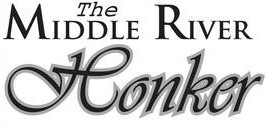Election will be held on August 13
Seeing its school face statutory operating debt (SOD), Greenbush-Middle River School taxpayers will have an opportunity to directly address its financial situation at the ballot box this summer, specifically on August 13, 2024. By unanimous vote at a May 29 special morning meeting, the GMR School Board officially approved a levy question that is asking district residents to increase its general education revenue by $925 per pupil.
If approved, the proposed levy would last for 10 years beginning with taxes payable in 2025. This levy would provide a net increase in total annual revenue of $200,265, according to information provided by Ehlers Public Finance Advisors.
“It says (an) additional referendum authority of $825 (per student), you can see that it gets us out of SOD in 2029. It gives a healthier fund balance of 14.24%,” GMR Superintendent Barb Muckenhirn said, citing fund balance projections. “… If you went for $925 a student, it gets us out of SOD and (gives us) an even stronger fund balance in 2029.”
As review, facing SOD and a continued deficit, the GMR School took official action to directly address its current financial situation. It came at the cost of staffing. At a special meeting on March 22, the GMR School Board approved reducing teacher and para staffing—cuts that amount to $175,000, about twothirds of the projected reductions the district is making for the next fiscal year.
Following its most recent audit, the district found out it was in a $534,266 deficit in its unassigned fund balance. Through its budget revision, the district has been able to drive the deficit down to $106,331.
During discussion over this levy question at a May 20 meeting, board member Brandon Kuznia made the initial recommendation to draw up this $925 per pupil, 10-year levy question and added how he didn’t want it subject to inflation. The board didn’t include an inflation factor as part of the levy question.
At this May 20 meeting, before the board officially directed administration to instruct Ehlers to write up this levy question for approval, board member Sue Ann Wahl asked if any of the numbers being proposed would allow the school to bring something back, mentioning art. As review, full-time art instruction was part of the staffing cuts the district made.
“I wouldn’t make any of those decisions,” Muckenhirn said. “I couldn’t recommend that because you don’t have the next budget in place, and you may bring back projects, you may bring back positions… I can’t speak to that right at this point though.”
Board member Peter Kern supported board member Wahl in terms of bringing back some things, but at this time he felt budget building should be the focus.
“We got to build a trajectory and a stable budget before we can have those conversations later, right? It’s, at least that’s what it feels like, what this whole year has felt like,” Kern said. “We don’t have a good handle on our budget to make it, to do anything right now, other than fix it mode… that’s how I feel or how I’ve seen it.”
Kern asked if $925 per pupil was enough and if the board should do $1,000.
“I think if you go a 1,000, it would be a strong no,” Wahl said. “… It really seems like a big number when you add that extra zero.”
Back at an April 15 meeting, Aaron Bushberger from Ehlers Public Finance Advisors highlighted not only the increase in revenue from a $925 per pupil levy increase, but several others too. A levy with an additional $1,170 per pupil unit would generate a $250,043 increase in total annual revenue, and one with an additional $1,400 per pupil unit would generate a $302,253 increase in total annual revenue.
At this April 15 meeting, Bushberger provided a comparison of nine area school districts, including GMR, Lancaster, Goodridge, Tri-County, Badger, Marshall County Central, Grygla, Kittson Central, and Stephen-Argyle Central. GMR ranked seventh in terms of total property taxes paid on a home with an estimated market value of $125,000, paying $335.
District residents in November 2021 voted to approve its existing authority of $506.05 per pupil and an increased authority of $700 to $1,206.05 per pupil— both lasting seven years. This generates about $287,000 in annual revenue.
“We still pay pretty minuscule compared to our neighbors everywhere,” Kern said, “and we’d be going and asking for an additional $200 on top of that. You still wouldn’t even be at the referendum of some of our local districts around us, and they’re about to go ask for more money yet on top of that.”
Under this proposed $925 per pupil levy, an individual having a home with an estimated market value of $125,000 would pay $148 more in total annual property taxes on their home. An individual with an estimated market value of $150,000 would pay $178 more annually, or as Kuznia pointed out 50 cents more per day. Kuznia expressed his support with the $925 per pupil levy.
“We made a lot of cuts and it still doesn’t get us out of the woods and the lower numbers don’t work… This is very reasonable compared to other districts,” Kuznia said. “… If it doesn’t pass and you don’t have a school, the other schools around will absorb us, and you’ll be paying a lot more than this.”

